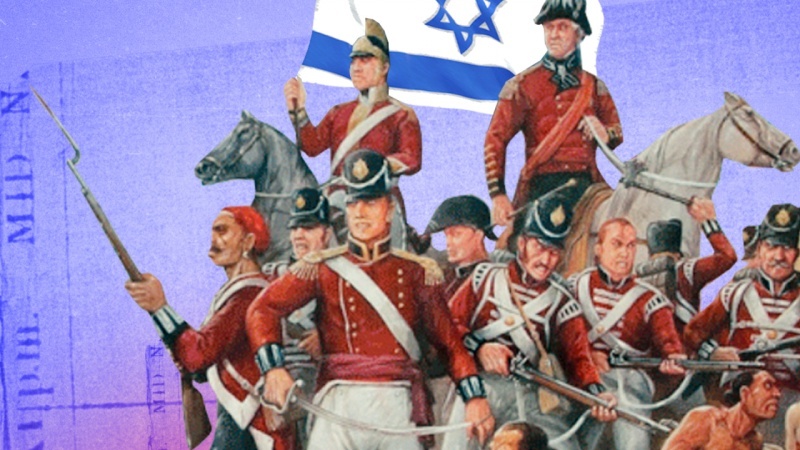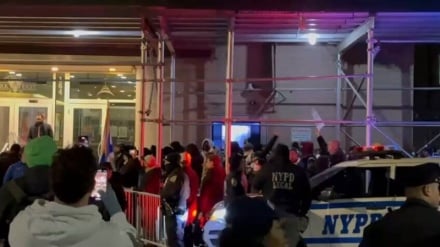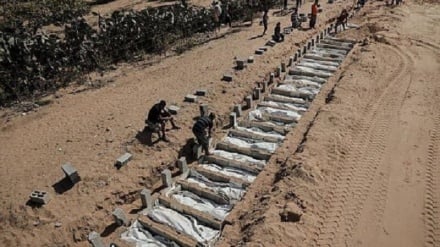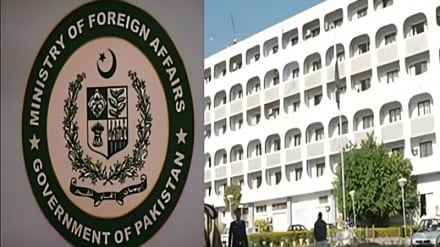Why should colonial project of Zionism be uprooted?
Pars Today- History bears witness that colonialists have rarely given up colonial hegemony without force from the colonized people or foreign pressures. Thus, the correct way to prevent increasing and continuous violence against those who are colonized is to wield internal or external pressure.
The history of anti- colonial combat has always been accompanied with violence. However, in rare cases, where tiny islands have been evacuated by colonial empires, anti-colonial combat has not been carried out without violence or with agreement. As for Hamas, the Israeli regime and different relevant stances in the world, one should understand the colonialist nature of Zionism and the resistance of Palestinians as a combat against colonialism. Pars Today has touched upon various aspects of the issue.
Examining the issue of genocide, which has been ignored by the American and other Western governments since the illegitimate birth of Zionism, reveals that the root cause of violence in Palestine dates back to the development of Zionism in late 19th century and its turning to a colonial project of immigrants. The reason is that Zionism, like other colonial projects of immigrants, seeks to omit the native population. When omission is not feasible through violence, colonialists resort to multiplied violence. Then, a colonial project of immigrants will end violence against the native people only when the project ends or is disintegrated.
Cognitive violence
The history of violence in modern Palestine is notable from 1882-2000. The arrival of the first group of Zionist immigrants in Palestine in 1882 was not a violent act per se. The violence of immigrants was a cognitive one, i.e. violent omission of Palestinians had already existed in their writings, imaginations and aspirations before entering Palestine: the myth of "a land without people". To turn imagination into reality, Zionism waited for occupation of Palestine by Britain in 1918. A few years later, in mid-1920, 11 villages were ethnically cleansed with the help of the British government.
Labor only for Jews
This was the first violent act which had been carried our systematically in a bid to omit the ownership of Palestinians. Another form of violence was the strategy of "Jewish labor" with the aim of expulsion of Palestinians from the labor market. This strategy and ethnic cleansing forced Palestinians to migrate to other places where there were no proper jobs or housing.
Unholy temple and start of Intifada
In 1929, when these violent acts were combined with the discourse of building a third temple in the holy sanctuary, Palestinians reacted to violence for the first time. This reaction was not coordinated, but it was just a spontaneous and desperate response to the bitter repercussions of the Zionist colonialism. Seven years later, when Britain permitted the entry of more immigrants and agreed with formation of a nascent Zionist government with the help of its army, Palestinians started a more organized campaign. This was the first Intifada which lasted for three years (1936-1939) and became known as the Arab uprising. In this era, Palestinian elite knew Zionism as an existential threat for Palestine and its people.
Aggression under mask of defense
The main Zionist partisan group, which cooperated with the British army to suppress the uprising, was named Hagana (meaning defense in Hebrew). This gradually turned into a narration of Israel to justify any aggressive act against Palestinians. In other words, any attack was introduced as self-defense- a concept which depicts the Israeli army as defense forces.
Ever since the influence of Britain, this military power has been applied for seizure of lands and markets. This army was deployed as a "defense" force against the "attacks" of the Palestinian anti-colonial uprising; hence it was no different from other colonialists of the 19th and 20th centuries.
Replacement of terrorist by murdered
The difference is that in most of the cases of modern history, where colonialism has ended, the acts of colonialists are seen as the acts of aggressors rather than self-defense. The great success of Zionism has been to sell aggression as self-defense and armed combat of Palestinians as terrorism. The British government, at least till 1948, would consider both violent acts as terrorism. But then it authorized the worst kinds of violence against Palestinians in the same year, exactly when it was witness to the first phase of ethnic cleansing of Palestinians.
Between December 1947 and May 1948, when Britain was still responsible for law and order, Zionist forces destroyed major cities and adjacent villages in Palestine. This was beyond terrorism and a crime against humanity. After accomplishment of the second phase of ethnic cleansing between May and December 1948, through the most violent methods ever seen in Palestine for centuries, half of the Palestinian population was forcible expelled, half of the villages were demolished and most of the cities were devastated.
Thus, history of violence in modern Palestine reveals that the root cause of violence in this country dates back to the development of Zionism in late 19th century and its turning to a colonial project of immigrants. The fact that colonialists will rarely give up colonialism without force or violence by those who are colonized or foreign pressures, indicates that the best way to prevent violence and confront colonial savagery is to force the colonial project to end this situation via internal and external pressure. The Zionist project has been the fake colonial mega-project to seize the land of Palestinians during the past two centuries.
Sources: To stop the century-long genocide in Palestine, uproot the source of all violence: Zionism. The New Arab, Ilan Pappe, 2024
Key phrases: What is Zionism? Gaza war, Where is Israel? Difference between Judaism and Zionism
RM/UR



